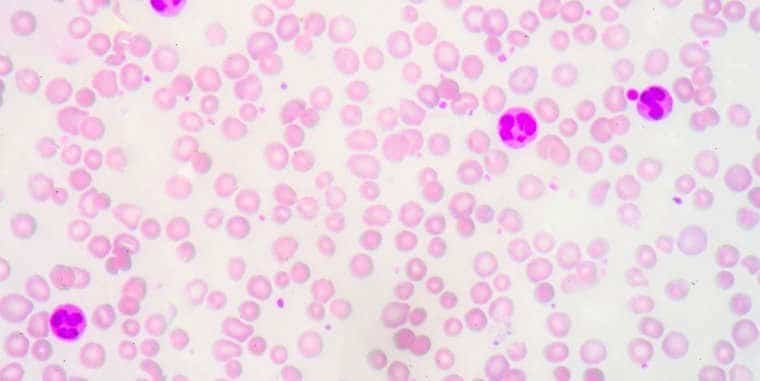Months after recovery from mild cases of COVID-19, you will still have immune cells in your body, ready to produce a response to the virus.
These are the results of an antibody study by researchers at the Washington University School of Medicine in St. Louis. Such cells, this is the keystone, could persist throughout life.
Mild cases, “long” antibodies
The results, published on May 24 in the journal Nature, suggest that mild cases of COVID-19 leave long-lasting antibodies, and that subsequent bouts of the disease are likely to be rare or none at all.
Covid-19 would leave a short-lasting immunity: a mistaken belief
“Last fall, there were reports that antibodies decline rapidly after getting sick with COVID-19. The mainstream media interpreted this as a sign that the immunity was not long-lasting. But this is a misinterpretation of the data,” says the senior author Ali ellebedy, PhD, associate professor of pathology and immunology, of medicine and molecular microbiology.

It is normal for antibody levels to drop after acute infection, but they do not drop to zero. They stabilize.
We found cells producing antibodies in people 11 months after the first symptoms. These cells will live and produce antibodies for the rest of people's lives. Strong evidence of long-lasting immunity.
Ali ellebedy
From mild cases, long-lived plasma cells
During a viral infection (specifically, the SARS-CoV-2 infection that produces mild cases), immune cells that produce antibodies rapidly multiply and circulate in the blood, sending antibody levels skyrocketing.
As the infection resolves, most of these cells die and the antibody levels in the blood drop. A small population of antibody-producing cells, called plasma cells long-lived, they migrate to the bone marrow and settle, where they continually secrete low levels of antibodies into the bloodstream to protect themselves from another encounter with the virus.

The key? The bone marrow
The key to understanding whether COVID-19 leads to long-lasting antibody protection, Ellebedy realized, lies in the bone marrow.
To find out if those recovered from mild cases of COVID-19 harbor long-lived plasma cells that produce antibodies specifically targeted to SARS-CoV-2, Ellebedy collaborated with co-authors Iskra Pusic, Rachel Presti e Jane O'Happelloran.
The team had already enrolled 77 participants who were giving blood samples at three-month intervals starting about a month after the initial infection. Most of the participants had had mild cases of COVID-19. Only six had been hospitalized.
With Pusic's help, Ellebedy and colleagues obtained bone marrow from 18 participants seven or eight months after their initial infections. Five of them returned four months later and provided a second bone marrow sample. For comparison, the team also collected bone marrow from 11 people who had never had COVID-19.
The results of antibody research
As expected, antibody levels in the blood of COVID-19 participants declined rapidly in the first months after infection and then leveled off, with some antibodies detectable even 11 months after infection.
More: 15 of 19 bone marrow samples from people who had COVID-19 contained antibody-producing cells specifically targeted to SARS-CoV-2.
Cells were also found four months later in the five people who returned to provide a second bone marrow sample.
None of the 11 people who had never had COVID-19 had antibody-producing cells in their bone marrow.
Indefinite protection
“People with mild cases of COVID-19 clear the virus from their bodies two to three weeks after infection,” Ellebedy says. “These cells don't divide. They are quiescent, found only in the bone marrow and secrete antibodies. They have done so since the infection resolved and will continue to do so indefinitely."
The well-founded hypothesis, therefore, is that infected people without symptoms or with mild symptoms will have a long, perhaps perpetual duration, immunity.
This still needs to be verified for those who have suffered a more serious infection, and especially for those who have been vaccinated.


